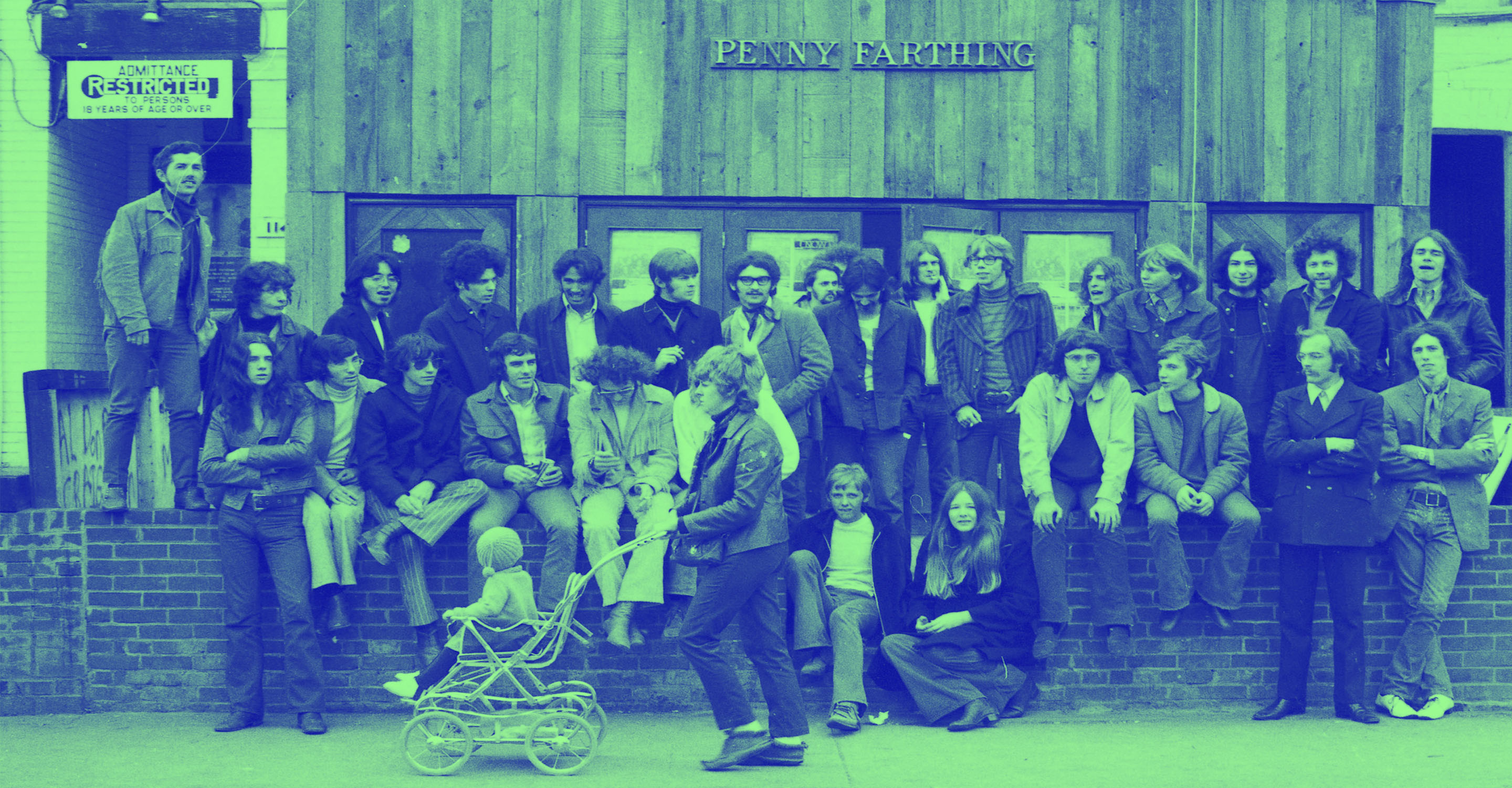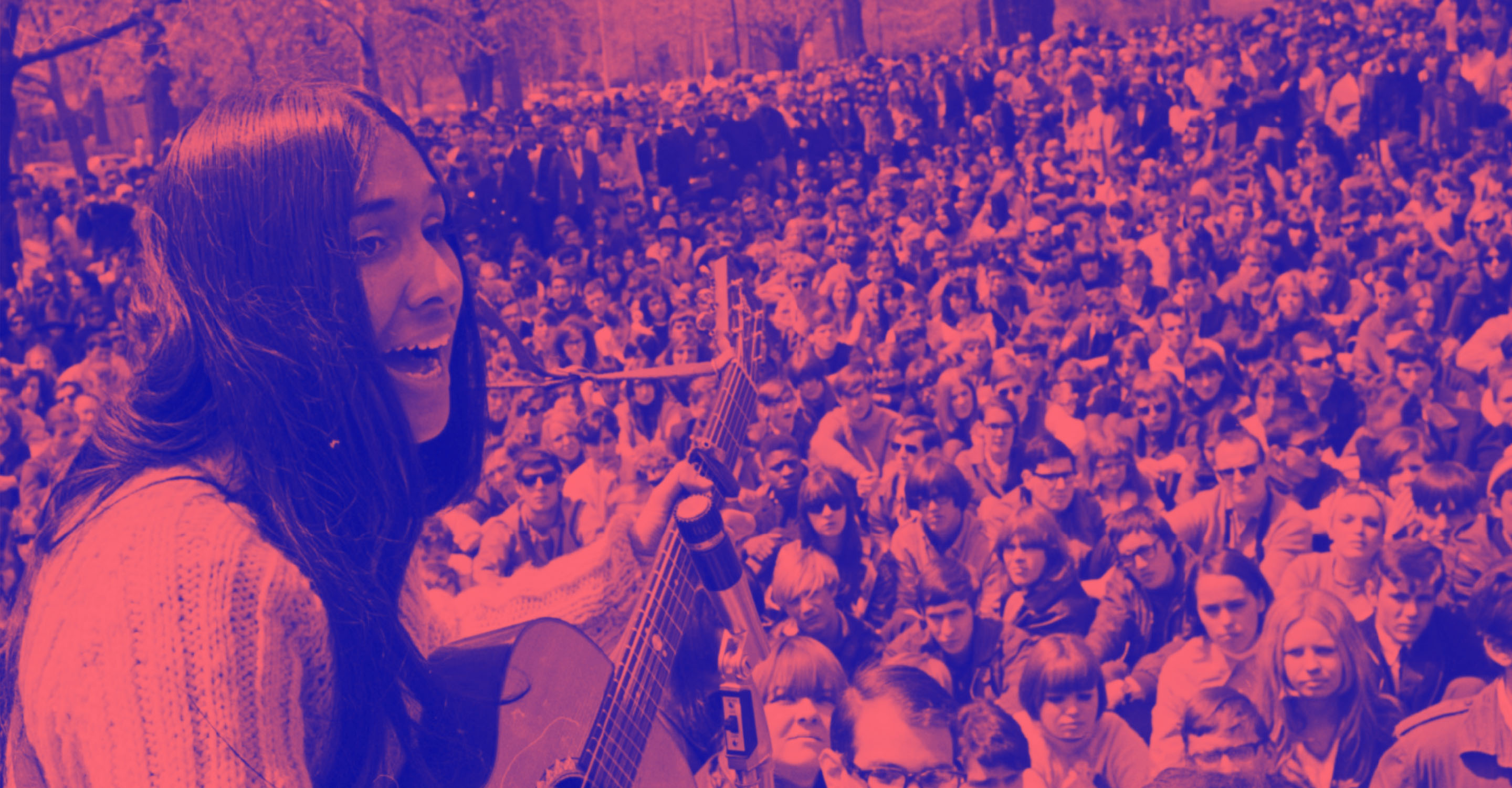
Talent is fostered through hustle, innovation, hard work and often a little luck. Success comes in many forms: your first record deal, headline tour, a certified-platinum album, your first million downloads, or a JUNO Award nomination.
As a global music city, Toronto's industry is a dynamic ecosystem that combines major and independent recording labels, studios, music incubators and accelerators, festivals and venues, artistic management teams, and music schools. Learn how these elements have come together to produce some of the biggest names in the music world today.
Explore the stories of artists who have "made it" as headliners, and the venues where the big names have come to play.
Listen: A Playlist For Making It
From special live performances at Massey Hall to record-breaking hits, listen to this playlist to hear the different sounds of success.
Many of the songs on this playlist represent the “greatest hits” for artists: the songs they’re most known for or have become indelibly associated with.
Many of the songs on this list broke records, won awards, or brought about social or political change.
Other songs represent special moments and high points in a career: an opportunity to headline at an iconic Toronto venue, from the El Mocambo to Massey Hall.
This online exhibition uses third-party applications including Spotify and YouTube. Check with your organization’s web administrator if you are unable to access content from these channels in the exhibition.
Awards and Honours
Recognition by the music industry and your peers can be among the most tangible signs of success for an artist. Many Toronto artists have been recognized both within Canada and around the world for their haunting lyrics, their rich melodies, or their broader impact on the music community.
JUNOs and Grammys
The JUNO Awards recognize Canadian achievement within the music industry. Originally known as the Golden Leaf Awards, the first ceremony was held in February 1970 at St. Lawrence Hall in downtown Toronto.
That year, Gordon Lightfoot took home the award for Top Folksinger. Since then, he has won 11 additional JUNO Awards during his multi-decade career.
The JUNO Awards also encompass the Canadian Music Hall of Fame, established in 1978. In its first year, it inducted jazz pianist legend Oscar Peterson. Since then, inductees have included Glenn Gould (1983), Buffy Sainte-Marie (1995), and the Barenaked Ladies (2018).
Awards can also signify international milestones: Joni Mitchell brought home the first Grammy Award presented to a Canadian in 1969 for best folk performance on her album Clouds, returning to the Grammy stage 42 years later to claim a Lifetime Achievement Award in 2002.
Drake received his first Grammy Award nomination for his first studio album, Thank Me Later, in 2010. Between 2010 and 2020, he has received 43 additional Grammy Award nominations.
Alessia Cara reached another milestone for Canadian musicians: in 2018, she became the first Canadian to receive the Best New Artist Grammy.

The Barenaked Ladies reunited for the first time in years at the 2018 JUNO Awards, held in Vancouver, British Columbia as part of their induction in the Canadian Music Hall of Fame.
Photo by Ryan Bolton
You've already won if you have people who are singing your songs word-for-word...
— Drake, Grammy Award Acceptance Speech, 2019
You don't need this right here, I promise you, you already won.
The Polaris Music Prize
Started in 2006, the Polaris Music Prize is a music award annually given to the best full-length Canadian album based on artistic merit, regardless of genre, sales, or record label. The Awards Ceremony, held every year since 2013 at the Eaton Auditorium (now known as The Carlu) have recognized many Canadian artists that have shifted the course of Canadian music history.
The Polaris Prize recognizes both new and established artists, such as Broken Social Scene member Leslie Feist (winner, 2011) and Buffy Sainte-Marie (winner, 2015).
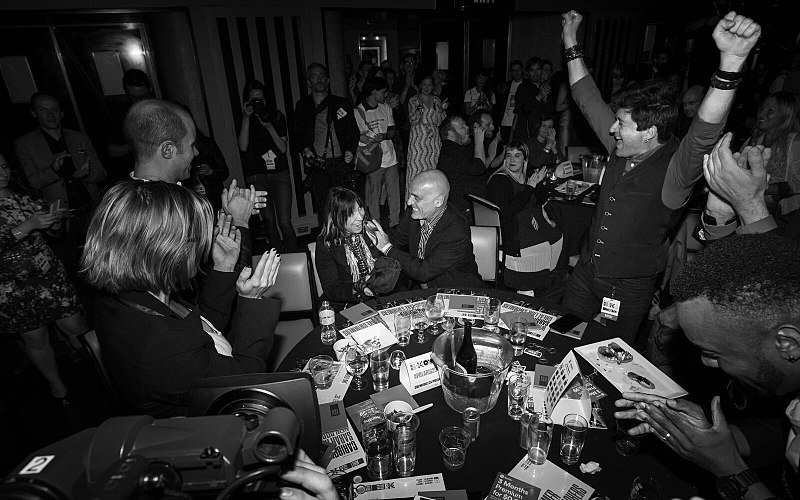
Buffy Sainte-Marie reacts as she is named winner of the 2015 Polaris Music Prize at its Gala, The Carlu, Toronto, September 21, 2015.
Photo by Dustin Rabin, courtesy of the Polaris Music Prize
Watch: A Polaris Collaboration Session
Winning the Polaris Music Prize is not only a celebration of existing music but can also inspire new musical collaborations. Past Polaris Music Prize winners Buffy Sainte-Marie and Tanya Tagaq teamed up to create a new recording “You Got To Run (Spirit Of The Wind)” as part of the second-ever Polaris Collaboration Session. The song was inspired by champion dogsled racer George Attla, who competed in the first-ever Iditarod dog sled race in 1973 and was the subject of the 1979 film, Spirit Of The Wind.
This online exhibition uses third-party applications including Spotify and YouTube. Check with your organization’s web administrator if you are unable to access content from these channels in the exhibition.

The song was recorded in fall 2016 at Orange Lounge in Toronto with producer Jon Levine. Presented by Stingray Music and supported by Canada Council. Courtesy of the Polaris Prize. Please note: this third-party video does not provide closed captions.
View Transcript[interior of a recording studio. Two women in separate booths sing into microphones. Other musicians, such as a guitarist and a drummer, are also shown]
Whether you're woman or whether you're man
Sometimes you got to take a stand
Just because you think you can
You got to run
You got to run
Whether you're woman or whether you're man
Sometimes you got to take a stand
Just because you think you can
You got to run
You got to run
Trying against the odds you're in a trance
Say who did you think you are to have a chance?
You're a no one from a place
Where everyone knows your face
The come and go way they know the sun
So you better hang on and hey you better run
'Cause here's your chance and your race has begun
Down in a hole
You feel like two different people in your soul
Feel like a loser until you see that as you bend
You learn to be your own best friend
And you learn how and you learn when
To take a chance on the spirit of the wind
Whether you're woman or whether you're man
Sometimes you got to take a stand
Just because you think you can
You got to run
You got to run
Babe ain't we been down
We've been so broke and been so low that I kissed the ground
But you can see yourself a winner
Beyond the money and the greed
Beyond the pride is a pure untested need
And to be a champion is more than luck and speed
It's power and freedom in the spirit of the wind
Whether you're woman or whether you're man
Sometimes you got to take a stand
Just because you know you can
You got to run
You got to run
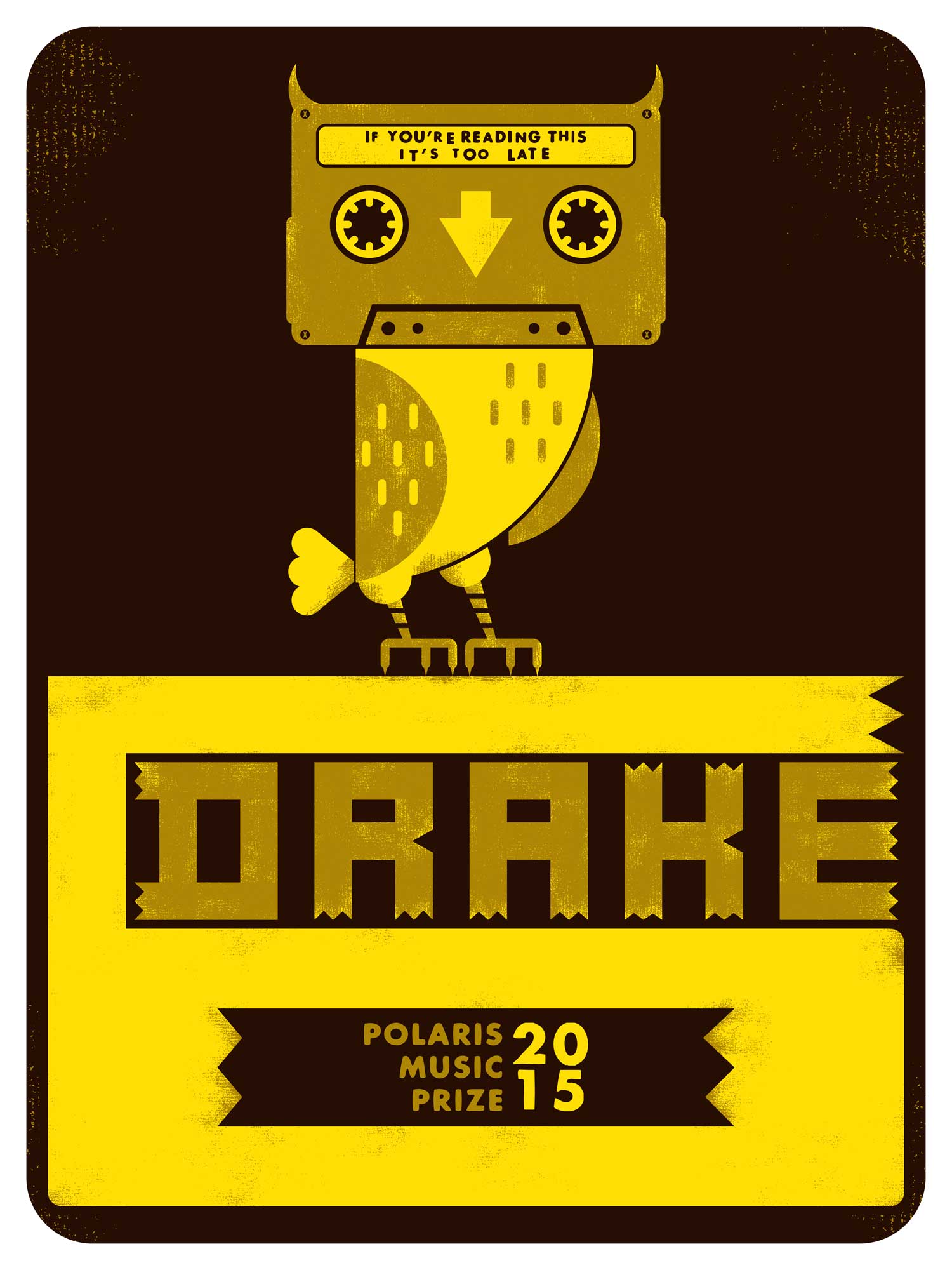
The Polaris Music Prize Poster for Drake’s 2015 nomination for “If You're Reading This It's Too Late.” Poster design by Matthew Daley
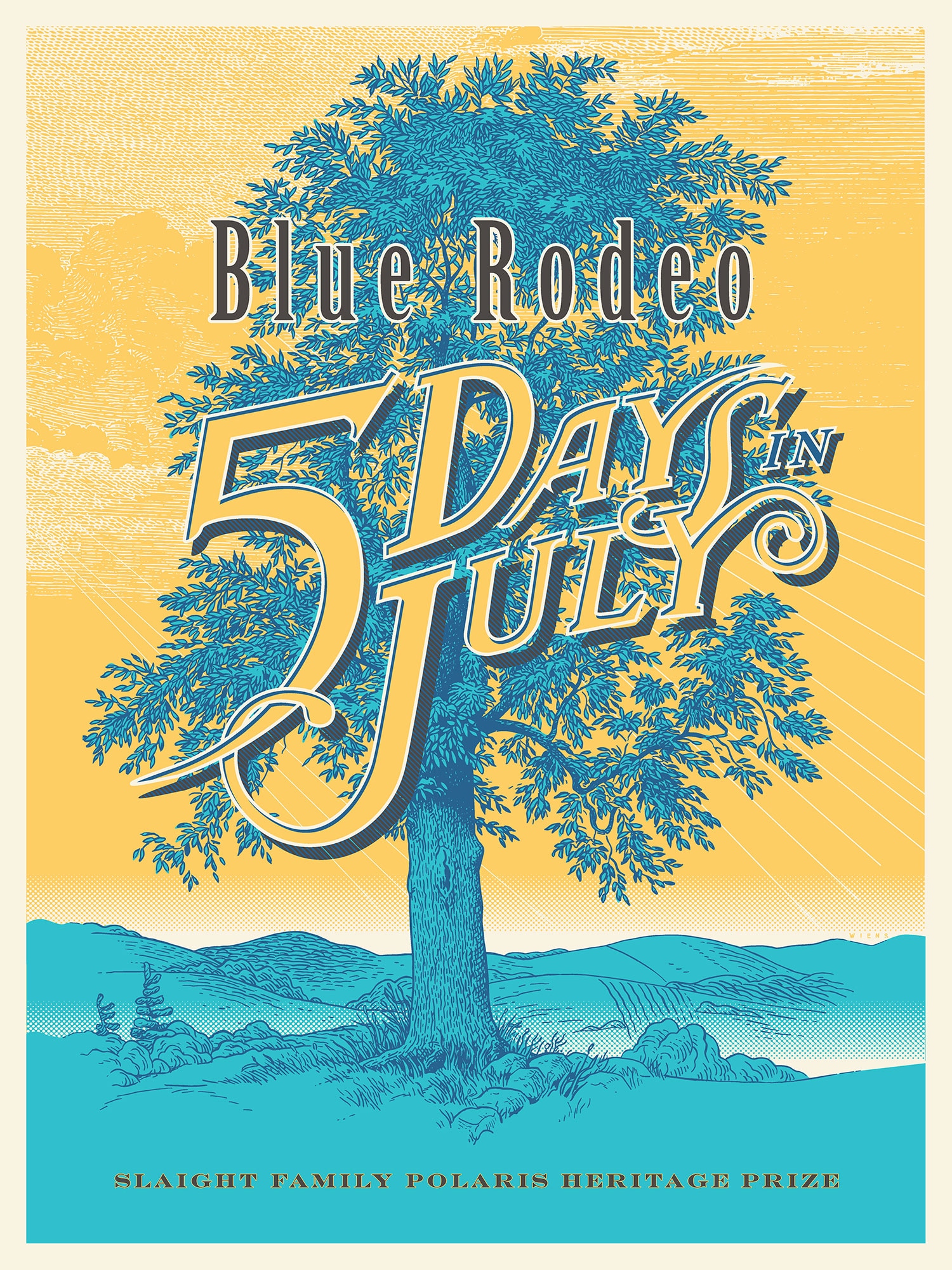
The 2017 Polaris Slaight Family Heritage Prize poster for Five Days in July by Blue Rodeo evokes the natural landscapes depicted in the album. Poster design by Carl Wiens
Hitting the Festival Stage
Music festivals have long been a way for up-and-coming artists and established headlining acts to rub shoulders. More than a chance to enjoy music outside on a hot summer day, music festivals can be game-changing opportunities for musicians to showcase their work in front of a large audience.
Headlining a festival stage before tens of thousands of fans can also be the ultimate way to know you’ve taken your music career to the next level.
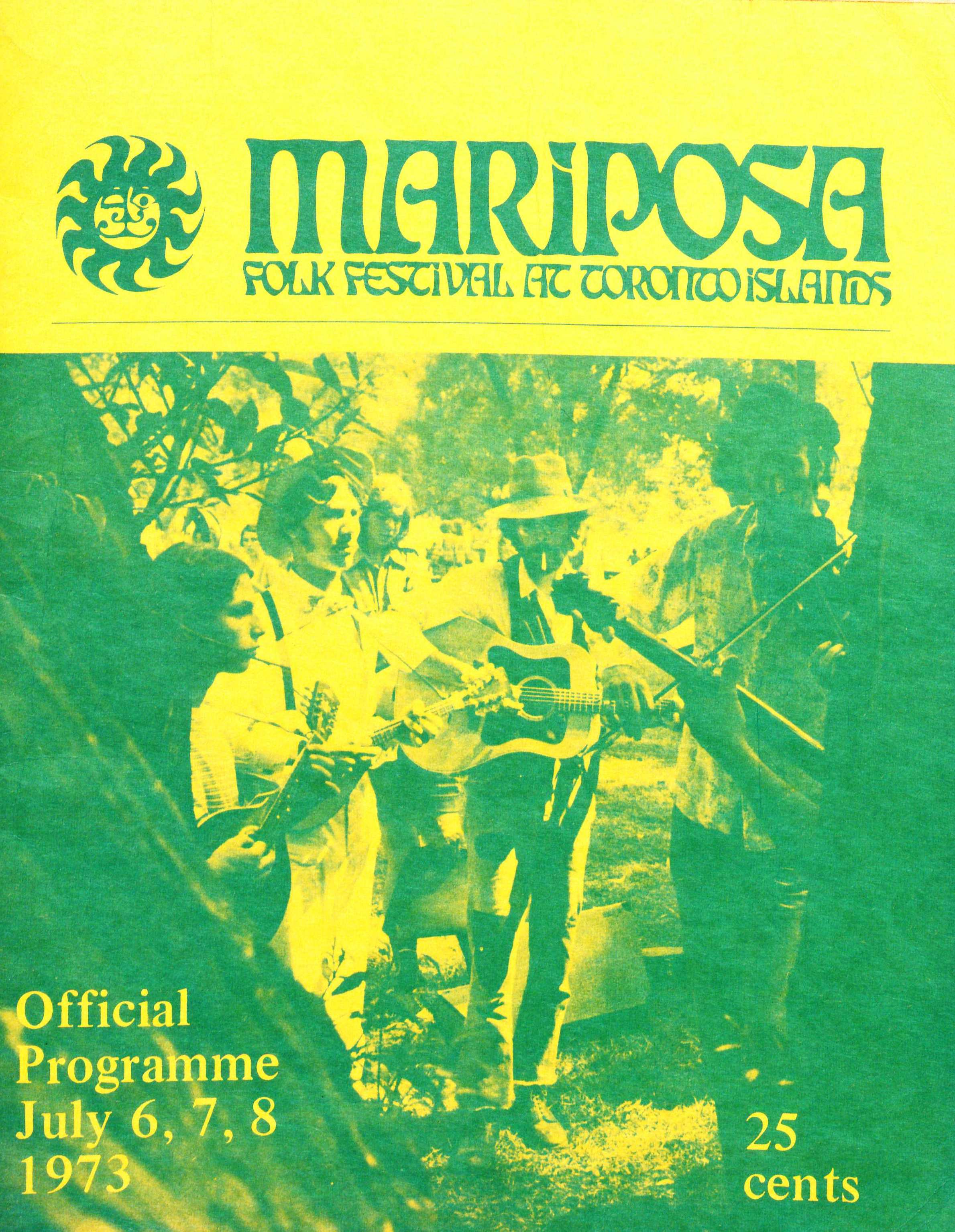
Mariposa Folk Festival At Toronto Islands 'Official Programme July 6,7,8 1973.” Although the Festival began in Orillia, a few rowdy years and too many festival-goers descending on the small town forced a move to Toronto. From 1968 to 1979, the Festival was held on the Toronto Islands.
York University Libraries, Clara Thomas Archives & Special Collections online exhibits
Mariposa Folk Festival
First held in Orillia, Ontario in 1961, the Mariposa Folk Festival became Ontario’s premiere annual folk festival for over 50 years, helping to launch the careers of Joni Mitchell, Bruce Cockburn, and Leonard Cohen.
Although the festival was launched in Gordon Lightfoot’s hometown in 1961, the Canadian troubadour was considered “not of high enough caliber” to perform that year.
It only took Lightfoot three years to prove Mariposa Folk Festival organizers wrong, when he was invited to perform at the 1964 Festival after it relocated from Orillia to Toronto.
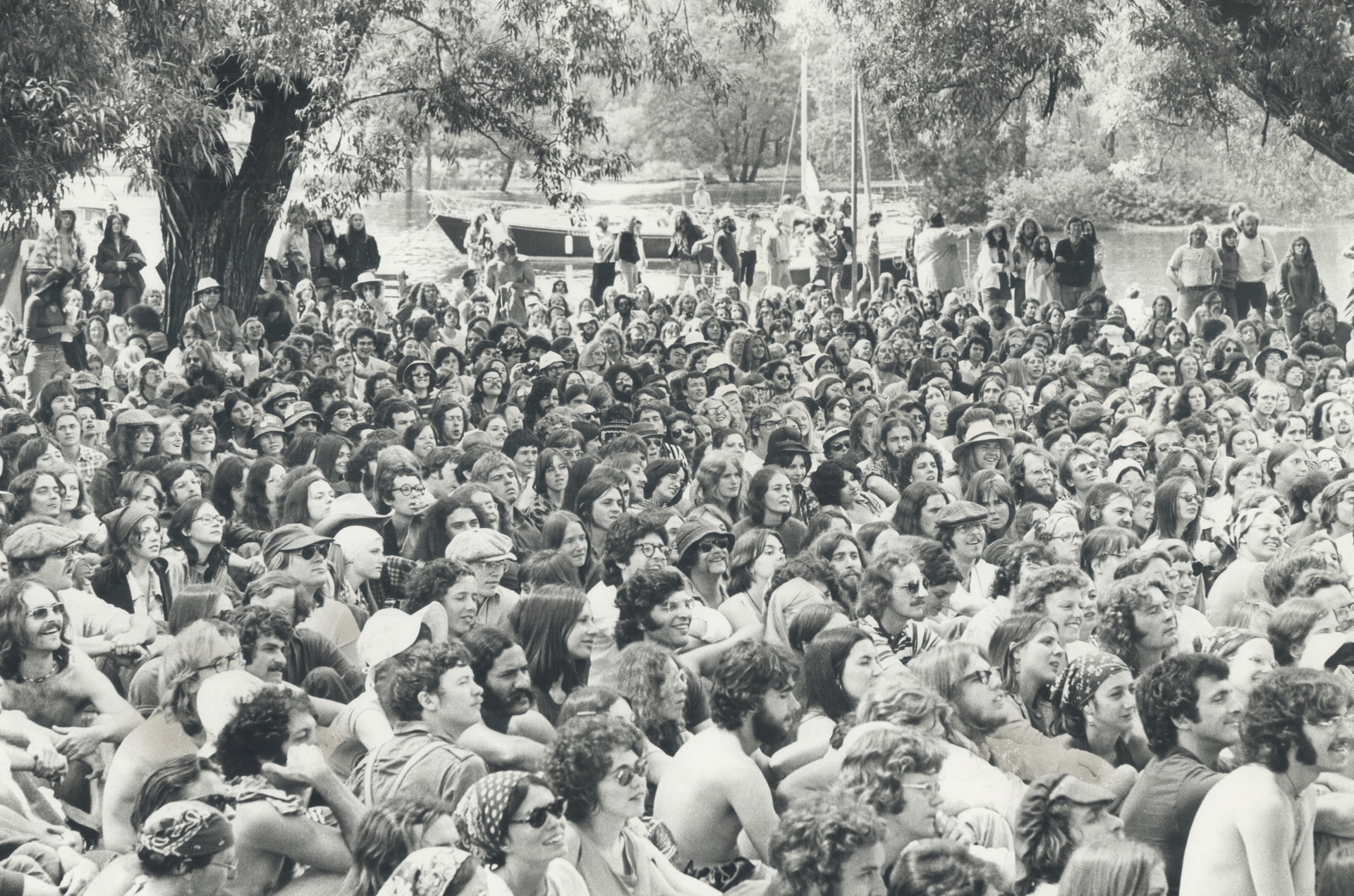
The crowd at Mariposa Folk Festival on Toronto's Centre Island, 1974.
Photograph by Doug Griffin, courtesy of Toronto Star Photo Archives
Listen: The Band at Woodstock
Bob Dylan rocked folk circles around the world when he debuted his new electric sound at the Newport Folk Festival in 1965.
Four years later his former backing band, the Band, headlined at the Woodstock music festival in upstate New York in 1969, performing in front of a crowd of almost one million people and cementing their status as rock icons.
This online exhibition uses third-party applications including Spotify and YouTube. Check with your organization’s web administrator if you are unable to access content from these channels in the exhibition.
If performing at festivals isn’t enough, why not hold your own? In 1996, Blue Rodeo launched the Stardust Picnic, a summer music festival held at Toronto’s Fort York National Historic Site.
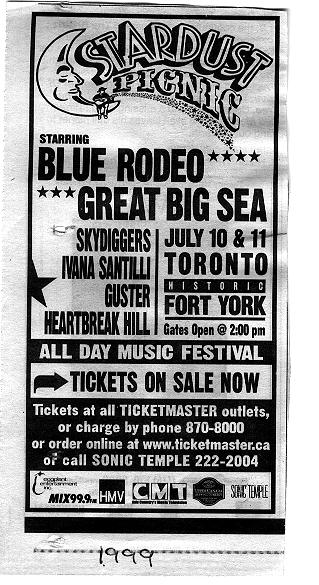
Courtesy of The Flyer Vault
A little more than a decade later, Drake launched OVO Fest as part of his October’s Very Own entertainment company. The inaugural festival in 2010 drew large crowds with the chance to see big names in hip hop like Jay Z and Eminem perform. In subsequent years, OVO Fest has seen the debut of new artists, like The Weeknd, who opened for Drake at the 2011 OVO Fest.
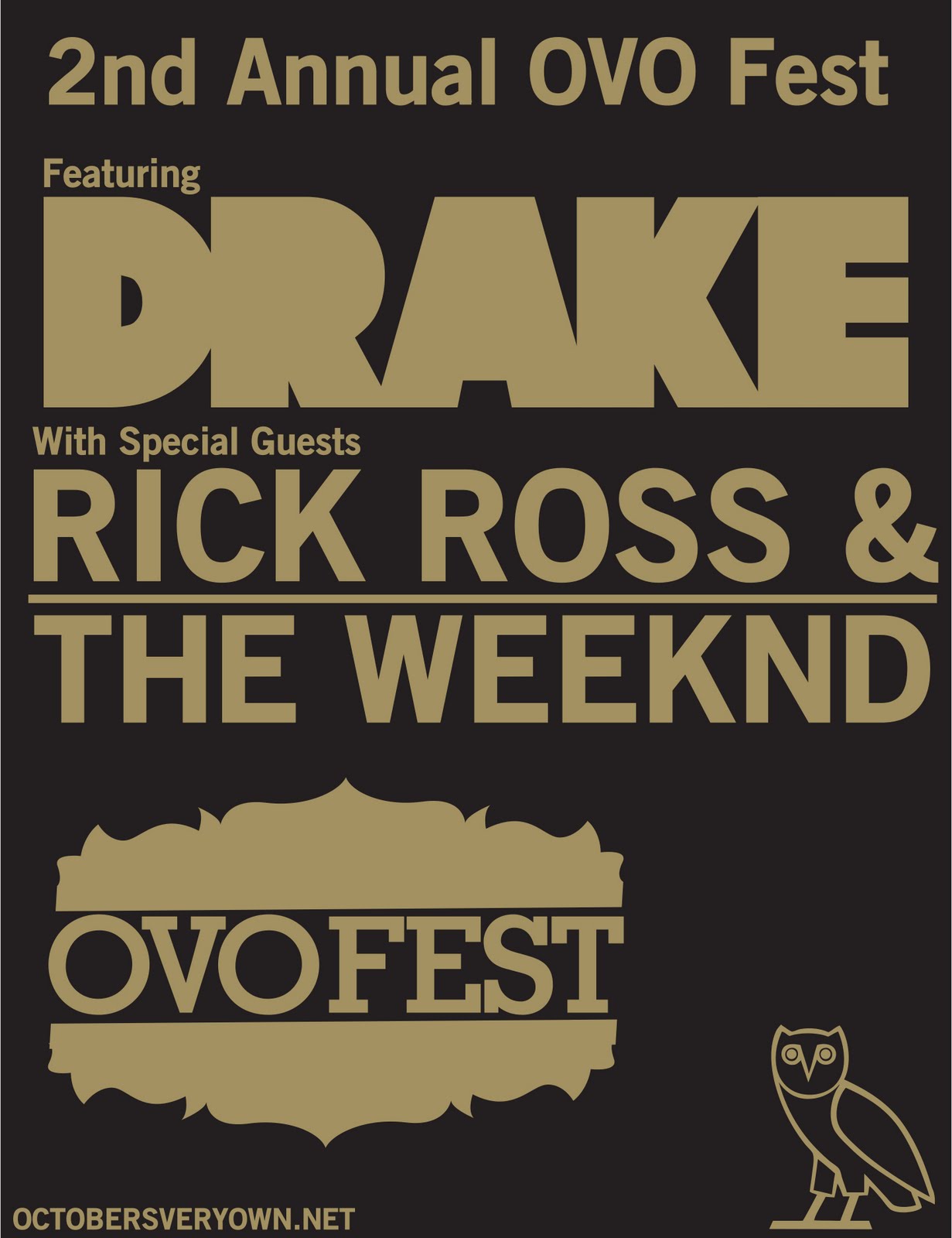
Courtesy of The Flyer Vault
Giving Back
A rising tide lifts all boats. Many Toronto musicians and artists, once they achieved success in their own careers, dedicated time, money, or their voices to support causes they believed in. This has included supporting new voices to enter Canada’s music industry or dedicating their lives to service or education.
Drake is a tide: He has lifted, if not all boats, then dozens and dozens of boats.
— Eric Andrew-Glee, The Globe and Mail, 2016
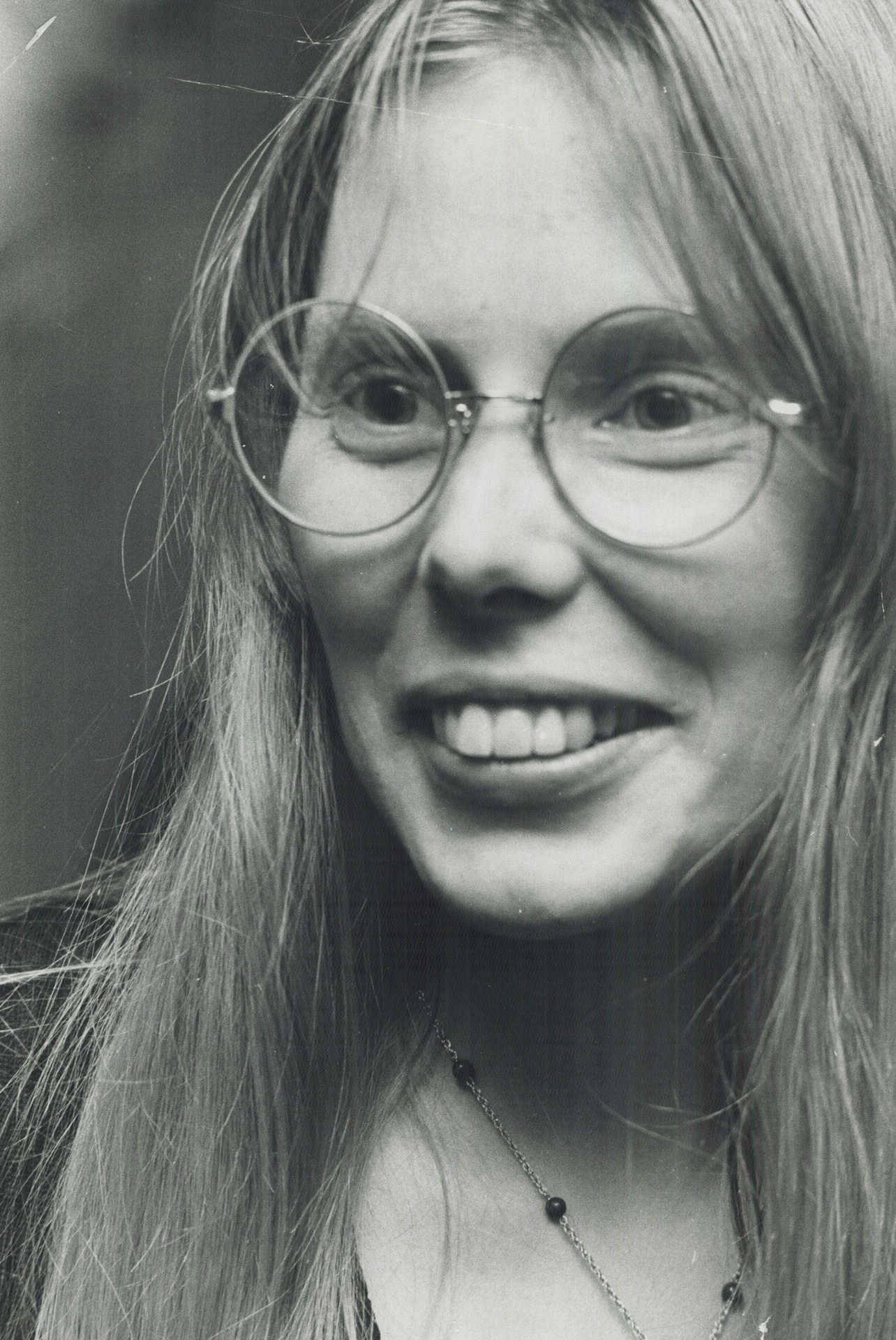
Joni Mitchell in 1969.
Photograph by Fred Ross, courtesy of Toronto Star Photo Archives
Environmental Activism
Many might know Joni Mitchell’s famous 1970 “Big Yellow Taxi” as an anthem for environmental activism. Fresh off her first Grammy win for her album Clouds, Mitchell performed the song at a historic October 1970 benefit concert at the Pacific Coliseum in Vancouver, British Columbia in support of a new organization: Greenpeace.
The concert raised $17,000 and the profile of the young environmentally focused organization, which has campaigned on issues such as climate change, deforestation, and overfishing for over 50 years.
Those Who Do, Teach
Many artists and musicians who have spent their life dedicated to learning and honing their craft, whether it be the violin, piano, or voice, pay their expertise forward in teaching the next generation of musicians.
At the top of his international jazz career in 1960, Oscar Peterson opened a school in Toronto dedicated to the formal study of jazz music, rarely a subject found on most music school curricula in the 1960s. Called the Advanced School for Contemporary Music, it featured a rotating selection of prominent jazz performers as instructors.
Jazz drummer Archie Alleyne also called on schools to incorporate and promote jazz education within the classroom. In 2003, he established the Archie Alleyne Scholarship Fund (AASF) to recognize and encourage academic excellence in jazz studies.
Lillian Allen, celebrated dub poet, has spent her career as an educator. She has held the post of distinguished Writer-in-Residence at Canada’s Queen’s University and University of Windsor. She currently is a Professor in the Faculty of Liberal Studies and Sciences at OCAD University in Toronto.
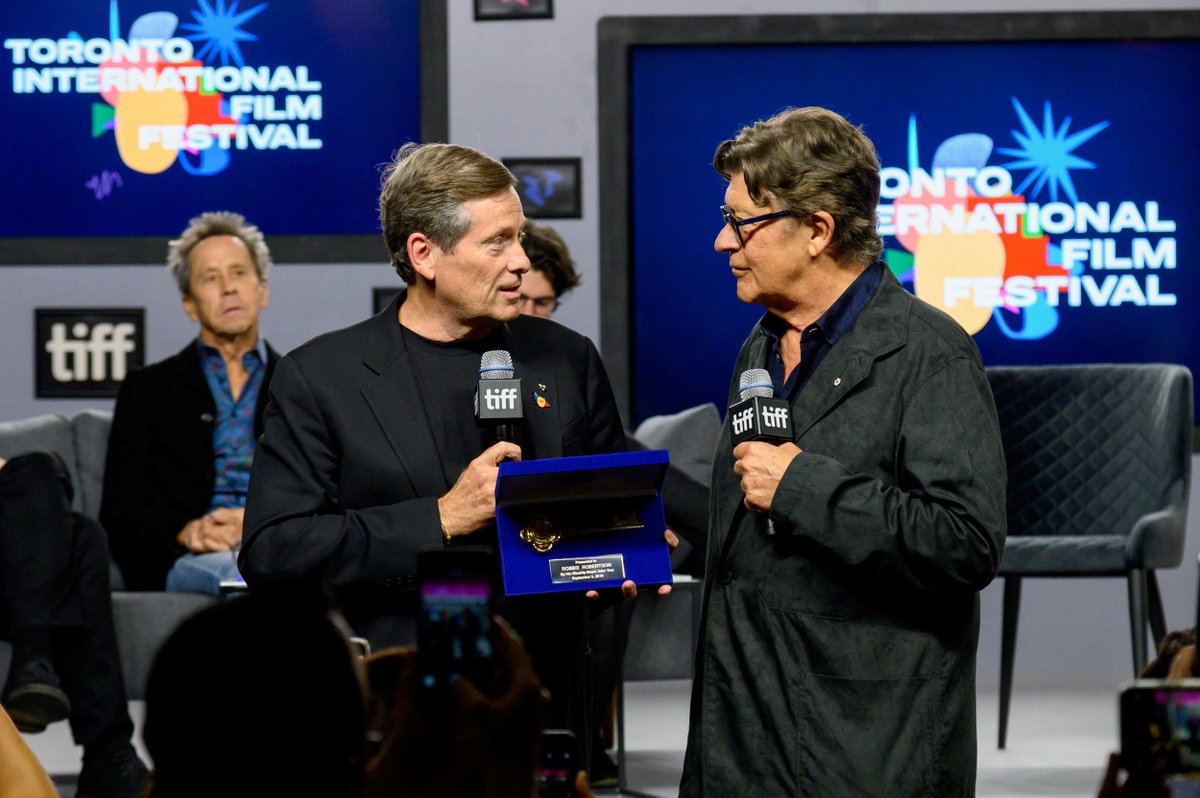
Mayor John Tory presents Robbie Robertson of the Band with a Key to the City of Toronto in September 2019 in recognition of his enduring contribution to music and the arts in Canada and around the world.
Courtesy of the City of Toronto
A City Applauds
From stars on a Walk of Fame to receiving a Key to the City to commemoration through a bronze statue or park, Toronto recognizes the musicians and artists that have impacted its people and communities.
The Barenaked Ladies, Rush, Joni Mitchell, Blue Rodeo, and Robbie Robertson of the Band have all received the Key to the City of Toronto, presented by the sitting Mayor.
In Ottawa, a bronze statue of Oscar Peterson invites pedestrians to sit with him at his iconic piano near Canada’s National Arts Centre.
In North York, the music-themed Lee-Lifeson Art Park commemorates the neighbourhood where Rush band members Geddy Lee and Alex Lifeson first started jamming out rock tunes in their parents’ basements.
Playing the Hallowed Halls
For others, it's simply playing an iconic hometown venue that means you've "made it." The opportunity to perform at Toronto's Maple Leaf Gardens, where Winston Churchill, the Beatles, or Elvis once stood. Or a recital at the Eaton Auditorium, the long-time artistic residence of Glenn Gould. Or a gig at the Concert Hall, site of epic rap battles from years prior.
But for many, the must-play gig always and forever remains: Massey Hall, the Grand Old Lady of Shuter Street, the oldest concert hall in Canada. Over its history, it has witnessed major moments in music: from a never-to-be-repeated concert by five jazz legends in 1953 to an epic prog rock live show by Rush in 1976.
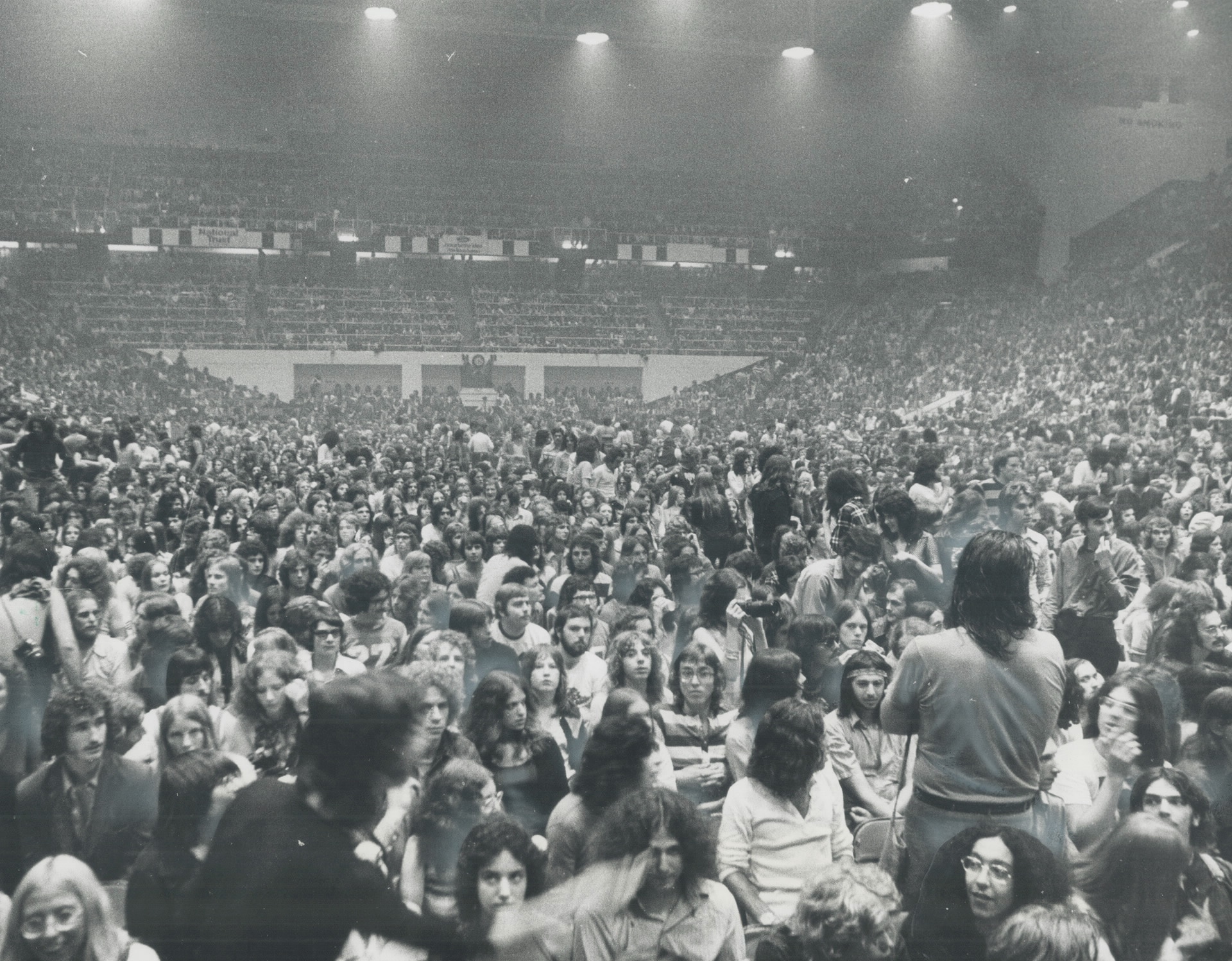
Fans pack Maple Leaf Gardens for the Rolling Stones concert, 1972.
Photo by Boris Spremo, courtesy of the Toronto Star Archives
A Return To The Beginning
Perhaps there’s no better way to cap a career as a musician than to return to the venue that helped you get your start. When Toronto’s Massey Hall announced the first long-term closure in its history for renovations in 2018, Gordon Lightfoot played its last concert before the lauded venue went dark for two years.
Lightfoot had first stepped on the Massey Hall stage in the early 1950s to compete as a singer. More than 70 years and 160 performances at the Hall later, his was the voice that represented its legacy in the city and throughout the world.
Find Out More about A Return To The Beginning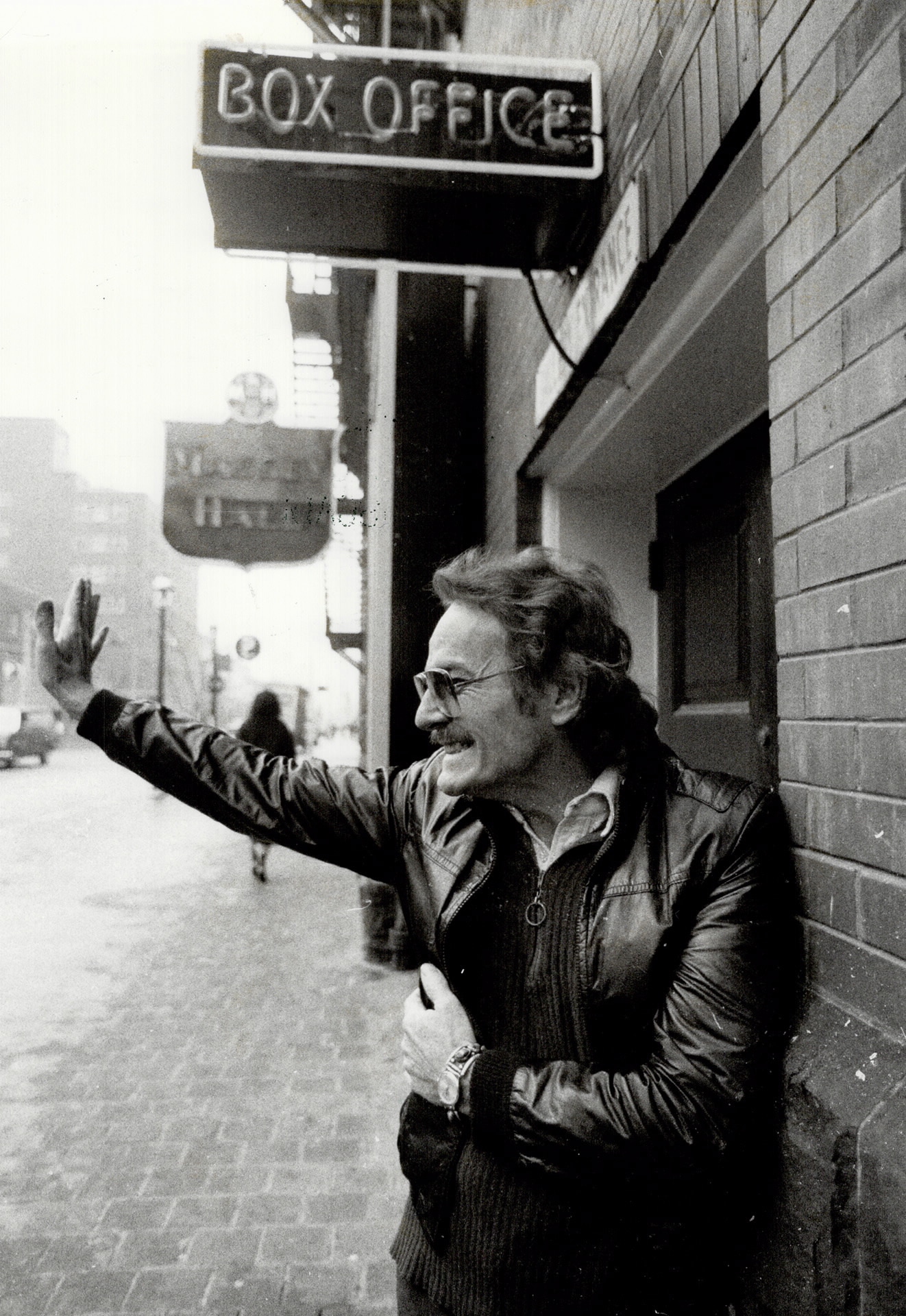
Gordon Lightfoot outside of Massey Hall in 1985.
Photo by Boris Spremo, courtesy of the Toronto Star Archives

